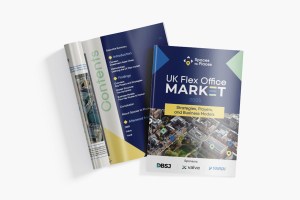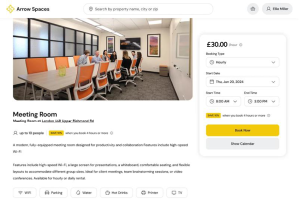Embracing a Flexible Future
With around 40% of the UK workforce now working at least one day a week from home, flexible working has become the norm for many.

Panel of experts
- Ralph Dorey, head of UK, Industrious
- Jacob Fisher, chief commercial officer, Runway East
- Justin Harley, regional director, Yardi
- Natasha Morris, director of flex office and head of Myo, Landsec
- Emily Smith, chief operating officer, Argyll
- Piers Townley, director of Belgravia offices and flex offices, London estate, Grosvenor
- Chair: Andrew Saunders, contributing editor, Property Week
More flexible working means more flexible office space, and the market is maturing fast – more than three quarters of landlords reported growing demand for flexible space last year, while two thirds of flex space operators plan to expand this year, according to The Instant Group’s UK Flex Market Report 2023.
Property Week and Yardi convened a panel of seasoned industry experts to unpick why so many occupiers, investors and developers are going flexible – and to assess trends in the current market and the prospects for the flexible future.
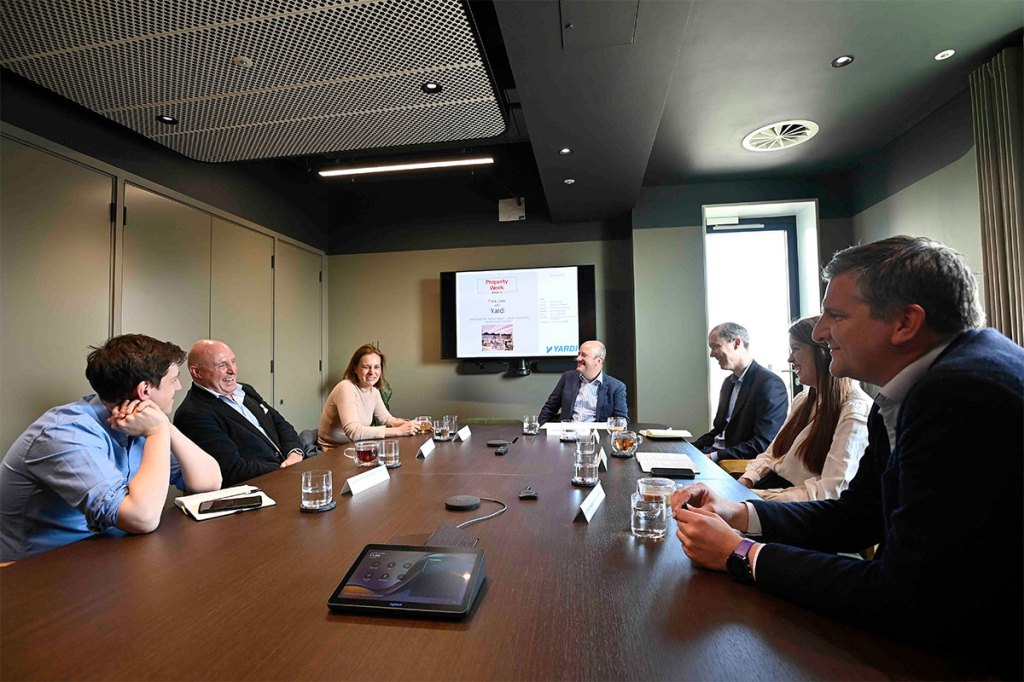
How is the flex space market changing as it matures? Are tenants taking more space?
Emily Smith: We’re at a very exciting time because the whole market is moving towards wanting more flexible leases and more amenity space. Back in the day, flex was a bit of a poor cousin to conventional space, and it certainly isn’t anymore. Last year, we [Argyll] were over 90% occupied for half the year. I’ve never seen that before and I’ve been in the industry since 2005.
What’s really interesting about sitting around the table today is seeing who is here talking about flex [big landlords such as Grosvenor and Landsec, for example]. I think each of us would have a different description of what flex is, though. Some of the large landlords coming into the sector are doing three- to five-year leases across whole floors, whereas before, flex was always about individual spaces for eight to 10 people. Now we’re seeing a merging of the two.
Piers Townley: As an emerging landlord in this area, I look after Grosvenor’s Belgravia offices as well as our flex business. I think of it [flex] as a continuum of our leasing. The value is in being able to approach our customers and offer them a variety of products – so if they want to grow mid-lease we can move them into offices that are suitable for them. Having that flexibility is where we are going.
Ralph Dorey: I was reading some stats from one of the big agencies recently, which said that their average flex deal was just under 2,000 sq ft. Our average is probably about eight desks at the moment. If you look at our US data, the average there is bigger, but it’s still not 2,000 sq ft. We look at flex more as coworking, rather than managed office solutions.
Natasha Morris: At Landsec, we have three products: Blank Canvas, our traditional cat-A space; Myo, which will do from six desks up to 15,000 sq ft; and Customised, our more fitted and managed product, which sits in the middle. But it’s exactly as everyone is saying – there is a blend. We have customers who might use all three, either at the same time or over the course of their lifetime with us. The opportunity as we see it lies in that breadth of demand.
What are the key challenges facing the flex space market in 2024?
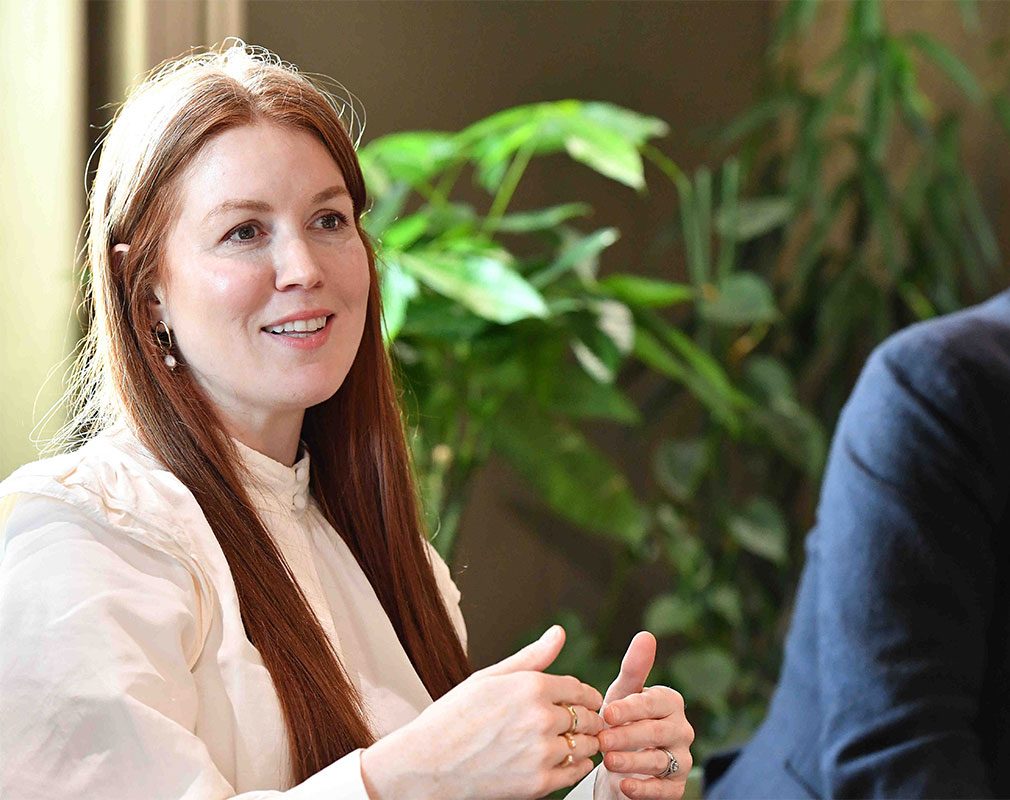
NM: What I have heard most often in the couple of years since I joined the industry is that we need to fix how flex is valued. If you put flex space into a building you are supporting its attractiveness – we [Landsec] see that as being accretive to value but the one place that doesn’t happen is at valuation.
RD: I rather flippantly said in a meeting once that if we called it hotel workspace the valuers might do better.
Justin Harley: Unlike student accommodation or hotels, for example, flex space is not seen as an asset class in its own right by investors. And there is not enough transactional evidence. Until that changes, valuation is always going to be difficult because it is just a case of one underwriter against another.
NM: There is also still a bit of a negative perception in the market, perhaps perpetuated by WeWork failing, which has also damaged the credibility of some other operators who have been very successful for a long time.
Is flex space still predominantly for smaller occupiers?
ES: It’s important not to have this narrative that flex space equals start-ups. Actually it’s increasingly big corporates that value the flexibility, the amenity space and having someone to make sure the fridges are stocked.
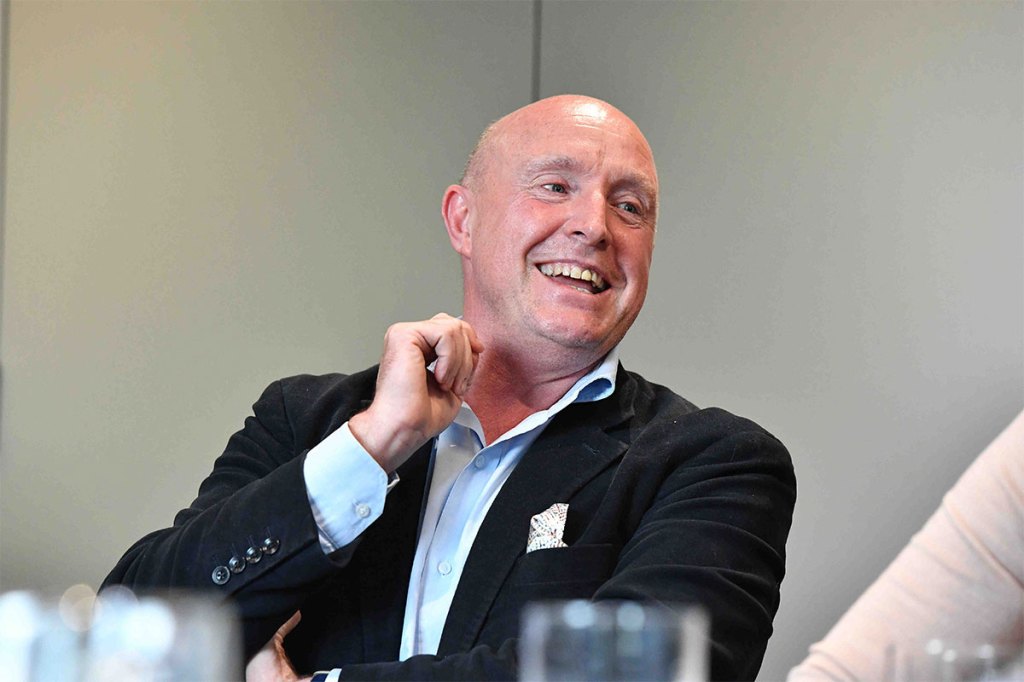
JH: Yardi is a flex space customer and we have 9,500 employees worldwide – we are an established business, not a start-up. When we came to London, we started with a small space with only four or five desks. Now we have about 35 desks in the same office building and about 60 people dropping in and using the space.
That flexibility has been brilliant for us – it helps to mitigate risk. It makes it so easy to put a new team in somewhere, even if you are not quite sure whether that market is going to work for you or not.
PT: It’s a maturing market. We’ve just done a couple of lettings to FTSE 100 companies, which we weren’t expecting. That’s because they don’t want the hassle of setting up a small satellite themselves – they just want to be able to move in. That’s what draws people in. We see the market only going one way in demand terms.
NM: A lot of customers use it [flex] as swing space – if a landlord wants to improve a building’s ESG [environmental, social and governance] elements for example, customers have to find a temporary home [while the upgrades are done]. If the base building is being improved, they might decide to redo their fit-out at the same time. We’re seeing a huge demand coming in from office refurbs alone.
What about the quality of the space that is available now?
JH: The quality of the product is fantastic now. It has moved on immeasurably from the early days, when flex offices could be pretty soulless places. I don’t think the industry gets enough credit for what it has done in terms of raising the bar for the quality of workspace across the board.
RD: We’ve moved away from providing a workplace solution to providing a workplace experience, so that people actually want to come to the office. The challenge is to create experiences that are for everyone, whether that’s having interesting activities at lunchtime or just the fact that someone knows their name and what kind of coffee they like to drink.
We don’t want to be like the gym where you only remember that you enjoy it after you have been. We want the office to be one of the reasons you get out of bed in the morning.
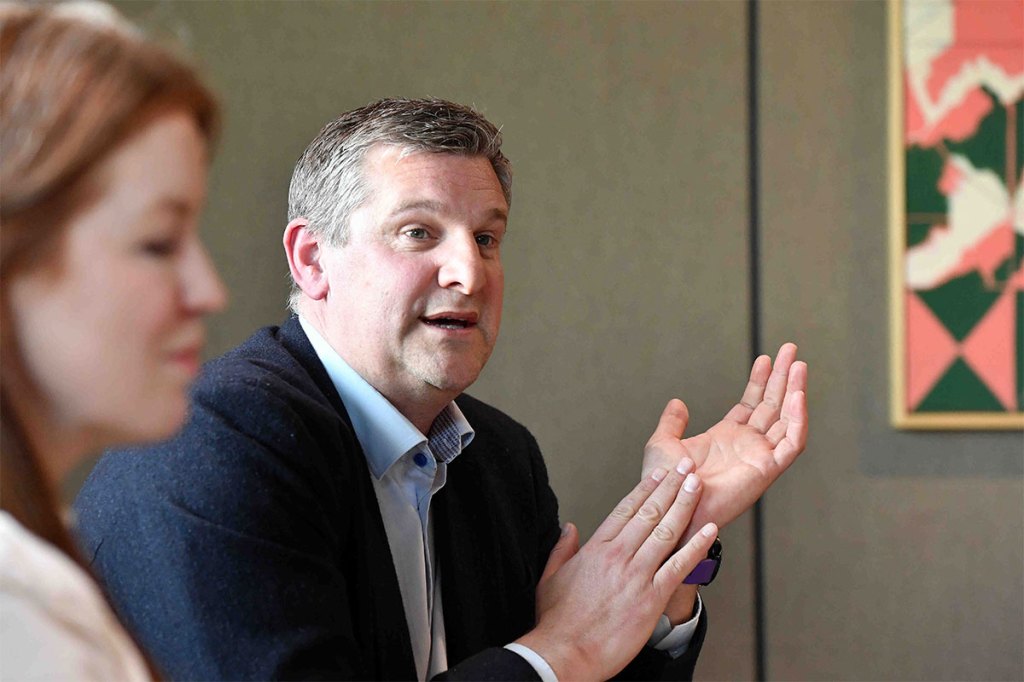
We’ve moved away from providing a workplace solution to providing a workplace experience, so that people actually want to come to the office. The challenge is to create experiences that are for everyone
Ralph Dorey, Industrious
Jacob Fisher: Operators are moving more towards experiences, specifically experiences that help differentiate them from other operators. So we’re never going to compete for customers with Argyll, for example, but they probably aren’t going to compete with us for Runway East people, who want things like ‘Cake Wednesday’, for example.
PT: You can’t forget about the basics. When we started out, we spoke to a lot of customers about what they care about in flex. The overwhelming things were keeping the place clean and having reception staff that mirror their businesses operations – starting at 8am rather than 9.30, for example, so they can have meetings at the times they need them.
ES: Last year we spent £23m refurbishing seven buildings and they look amazing. But when we asked our customers what the best thing about their building was, they said the free Twix.
Investment is the key to continuing growth – how could the sector make itself even more attractive to investors?
ES: We all report very differently – we [Argyll] don’t report by desk, we report per square foot. When we get data out to our investors and shareholders, they ask for an industry standard. But because some [operators] might wrap in breakfast, for example, and others wrap in a bit of tech, it’s very hard to make a meaningful extrapolation.
JF: There’s a lot of desk rates data. But £600 for a 120 sq ft desk is a very similar rate on a per-square-foot basis to £800 for a 140 sq ft desk. Then there are managed suites with communal spaces and meeting rooms. It is hard to compare like for like – you have to walk around to work out what is really happening.
JH: The technology is disjointed. People have had lots of different systems, so it takes a long time to pull data together from those systems. There has been no real data integrity. Yardi’s core proposition is to bring all that together and have one set of data to make it much easier and quicker to report back to investors and landlords.
How much potential is there in regional markets for flex space?
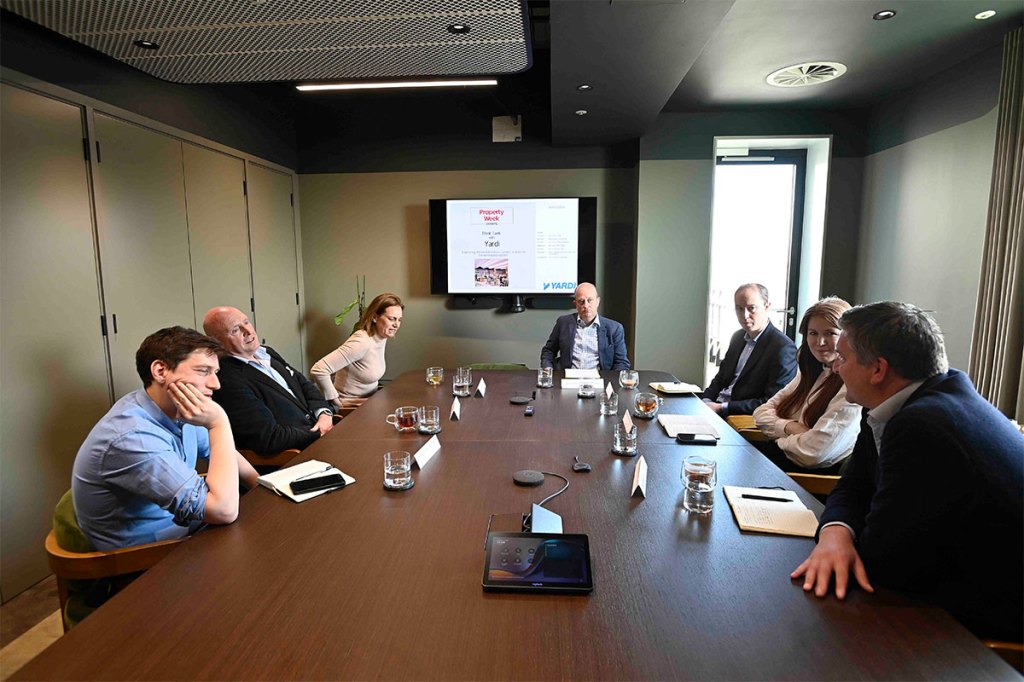
JF: The regional markets can be challenging to get into – you need to do more research and it can be tempting to stay in London where there is plenty of volume. But we have found the larger cities like Bristol are great – places where there is enough liquidity in terms of transactions, and there is good graduate retention in local businesses [to drive demand].
Also, it is good to play a part in supporting local businesses outside London – the tech scene in Bristol has really taken off over the past 10 years, and having great space is important for them when it comes to attracting talent.
RD: We are in Manchester and we have looked at the other major cities and Ireland. For us it’s about the network effect – where do our clients want us to be? About 12% of our clients in Manchester are also with us in London.
Two years after the end of the pandemic, are working patterns finding a new equilibrium?
ES: People are returning to the office, but the new working week is Monday to Thursday. Fridays are quiet. We have to make offices into places people actually want to be.
JF: There was a school of thought that the office was going to be unbundled – people might book a hot desk from Argyll, go for a meeting at Runway East and work at Industrious when they are in LA, for example. I’m glad to say that hasn’t really happened, or only to a very small degree. People want somewhere they can call their own, where they can get the team together and they know it is right for them.
First published on Property Week.
Follow Yardi Kube on LinkedIn for the latest news, customer stories and blog posts.

